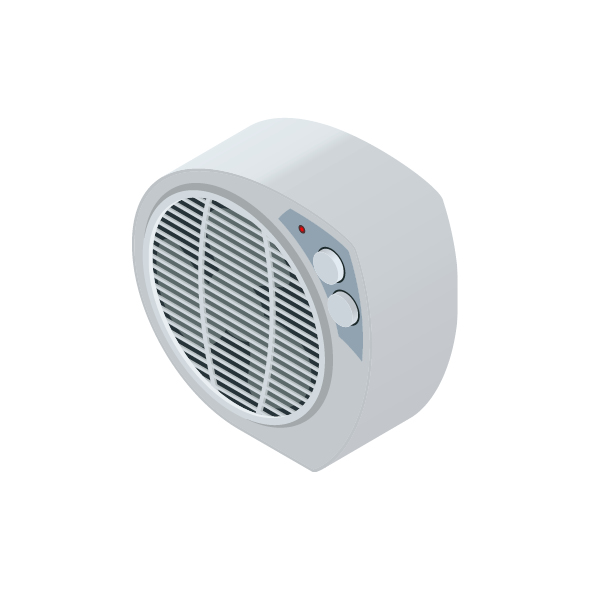Space Heaters: A quick guide to warming up your home

As South Africans, we’re used to mild and warm winters. As a result, our buildings are not designed or built to efficiently weather the cold. There are, however, areas in the country that experience periods of bitter cold that calls for bringing out the trusted heater.
In cold climates, buildings are fitted with a form of central heating, heat pumps, wood stoves, open fireplaces or air conditioners. Unless major renovations are part of your plans and budget, cold days can be tempered with temporary space heating options – most typically electric or gas heaters. Because of the cost and effectiveness of their operation, these space heaters are best suited for shorter durations (switched on for only a few hours or days in winter) and for smaller, contained spaces. We give you a breakdown of what to keep in mind when buying your space heater:
Directional vs Convection Heaters
When selecting the best heater for your house, consider where and how you will use it. Some space heaters are better to warm a small area quickly for a shorter period. These are referred to as directional heaters, and examples include gas heaters, fan heaters and bar heaters. These are ideal for warming a body or few bodies quickly, rather than heating and keeping a room warm.
Convection heaters, on the other hand, are better for warming and maintaining the warmth in a room for more extended periods of time. They are typically controlled with a thermostat, switching off once the temperature setting of the room was obtained and automatically back on again when the temperature drops. Examples include oil fin heaters, wall panel heaters and it is best to do a bit of research to decide what is best for your needs. You can read up on the most suitable heaters for your pocket here: https://www.1life.co.za/blog/cheapest-heaters and https://www.capetownmagazine.com/heaters.
Heating up on a Budget
Speaking of your pocket, the cost of a heater is an important consideration in the selection process. There are two cost components to bear in mind: the purchase price and the cost of running the heater. The purchase price is an easy, direct comparison. Running costs depend on the type and cost of the fuel source and the efficiency with which the heater turns this fuel source into useful heat.
In South Africa, we mainly make use of electricity or gas as fuel sources for heaters. The benefit of gas is that it provides instant heat and is available when electricity supply (loadshedding) is a concern. The downside is, however, that gas in South Africa is considerably more expensive than electricity (despite recent electricity price hikes). Almost all electrical heater options are significantly more economical than gas heaters.
Do the Math
When you compare prices of running different electrical heaters, you will need to know the wattage of the heater to do the following calculation:
Heater Wattage (W)/1000 x hours of use per day x R/kWh that you pay for electricity. This will give you the cost per day for using the electrical heater. Think about it this way: If this is a 1,200 Watt heater, it is effectively the same power usage as having your kettle boil non-stop for hours at a time. This simple calculation provides an indication of costs if the heater runs at full for a length of time. When a thermostat switches the heater on and off as needed, the power usage will be somewhat less over this period, which is why heaters with thermostats can offer a more economical option.
Make Your Pick
In summary, it is important to give some thought to how you are likely to use the heater and select the best type for your application. Consider the cost of running the heater in your preferred way. Also bear in mind the safety of open elements, gas leaks, etc. Whichever option you select, be sure to start with no cost or lowest cost warming options first. Dress warmly, make sure curtains are drawn, windows and doors are closed, and openings are sealed. Ceiling insulation is generally a good option to save heating costs. Hot water bottles and electric blankets are other alternatives available for localized warmth at low costs. And remember don’t ramp up the heat too quickly. Hot and stuffy rooms require ventilation which leads to wasted energy and unnecessary costs!



